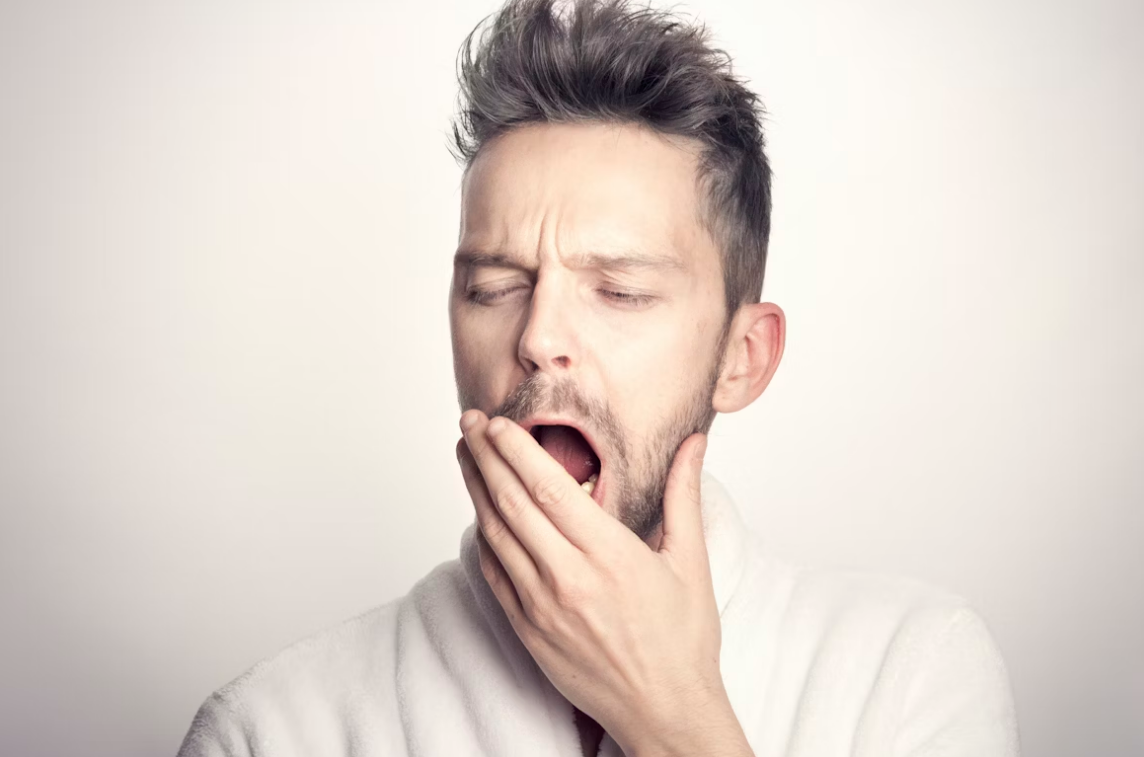
The holidays often bring together family, friends, and a table piled high with indulgent dishes, creating moments many look forward to all year.
Yet, even the most enthusiastic eaters often find themselves suddenly overcome by drowsiness after the meal, struggling to stay alert for the rest of the afternoon.
While turkey tends to take the blame for this post-meal slump, the real reasons are more complicated and involve a mix of carbs, alcohol, and portion size.
Fortunately, there are practical strategies you can use to maintain energy and enjoy the holiday without succumbing to a food coma.
Does turkey really make you sleepy?
Turkey contains tryptophan, an amino acid linked to the production of serotonin and melatonin, which can promote feelings of relaxation.
However, a typical serving of turkey provides only 125 to 150 milligrams of tryptophan—far below the roughly 1,000 milligrams research suggests would be needed to cause sleepiness.
Turkey also contains many other amino acids that compete for transport into the brain, making it unlikely that tryptophan alone leads to fatigue. Instead, post-meal drowsiness is more often influenced by what and how much you eat, as well as any alcohol consumed.
The real reasons behind post-meal fatigue
Simple carbohydrates like mashed potatoes, stuffing, and desserts can trigger a spike in insulin, followed by a rapid drop in blood sugar, which often leads to a feeling of tiredness. Alcohol acts as a sedative and can both increase drowsiness and reduce sleep quality later in the evening.
Large meals require extra digestive effort, increasing metabolism and diverting blood flow away from the brain, which contributes to fatigue. Activation of the parasympathetic nervous system—the “rest-and-digest” response—also encourages relaxation, explaining why comfort foods often make us sleepy.
Also read: Make this holiday season your happiest yet with these six senior-friendly tips
5 ways to fight fatigue after a holiday feast
1. Take a shot (of espresso)
A single shot of espresso contains roughly 60 milligrams of caffeine, enough to give a mild energy boost without significantly affecting sleep for most people. Research suggests that post-meal caffeine may also aid digestion and reduce feelings of fullness.
It is important, however, to avoid caffeine later in the evening because of its roughly five-hour half-life. Using espresso strategically can help you stay alert without overstimulating your system.
2. Pile up the protein
Filling at least a third of your plate with protein, alongside vegetables and carbohydrates, can help prevent blood sugar spikes and crashes.
Meals higher in protein have been shown to reduce post-meal energy dips compared with carb-heavy meals. Prioritizing protein can make a substantial difference in how you feel after a large holiday meal.
Also read: 5 game-changing health secrets seniors can learn from their pets
3. Head outside
Taking a 30-minute walk after eating helps regulate blood sugar levels and reduces the post-meal energy slump. Physical activity stimulates circulation and supports efficient digestion.
Even a short stroll around the neighborhood can improve alertness and mood. Incorporating movement after the feast can turn a sluggish afternoon into an opportunity for light exercise and social time.
4. Sip smartly
If you choose to drink alcohol, alternating each alcoholic beverage with a glass of water can help reduce drowsiness. Staying hydrated supports circulation, energy, and digestion while minimizing alcohol’s sedative effects.
5. Focus on sleep the night before
Getting quality rest before a holiday meal sets the stage for maintaining energy throughout the day. Proper sleep helps regulate mood, supports metabolic function, and reduces levels of ghrelin, the hormone that controls hunger.
Being well-rested reduces the likelihood of post-meal crashes and promotes alertness. Planning ahead for a good night of sleep can make your holiday dining experience more enjoyable and sustainable.
Read also:
- 9 simple habits that can help you feel younger, stronger, and more energized
- 5 daily habits for youthful aging, according to a gastroenterologist
Holiday feasts can be energizing instead of exhausting when approached with small, strategic habits. Would you try a post-meal walk or adjust your plate to include more protein to stay alert? Share your tips for avoiding the holiday food coma in the comments below.






